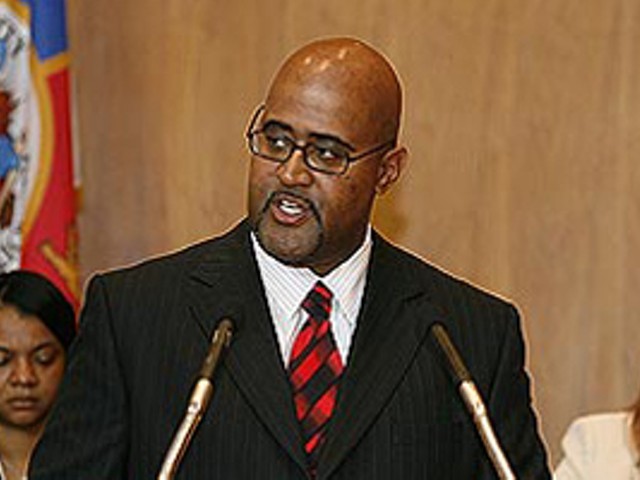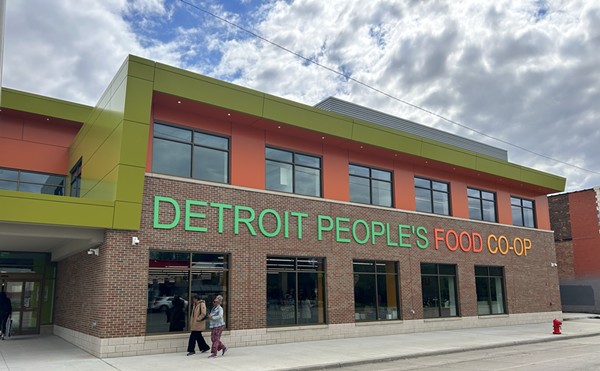It wouldn't be an election year without candidates promising tax cuts, right?But who gets them, how much they are, what's the likelihood they can ever be made and what they say about each candidates' priorities are the bigger questions.
"Tax and fiscal policy will loom large in the next president's domestic policy agenda," says a recent report from the nonpartisan Tax Policy Center. "The leading presidential candidates have not addressed it seriously."
The center, a joint venture of the Urban Institute and Brookings Institution located in Washington, D.C., analyzed the plans, calling them "major changes" to current tax laws. In the 65-page report, the authors examined not only campaign white papers, but details advisers provided, as well as what the candidates have said on the stump.
"Clearly taxes are always an important issue. They get a lot of attention during the campaign," says Len Burman, the center's director. "But there's a lot of misinformation."
In particular, the group FactCheck.org has accused the McCain campaign of running a series of commercials that falsely accuse Obama of wanting to inflict painful tax increases on working families.
But, in the big picture, the consensus among experts is that neither candidate could do what he says without "unprecedented" cuts in federal spending, and neither has detailed such a plan.
In general, Arizona Sen. John McCain, the Republican nominee, proposes to make permanent the Bush tax cuts enacted since 2001 and set to expire in 2010. His plan would "primarily benefit those with very high incomes," according to the report.
The Democratic nominee, Sen. Barack Obama of Illinois, would like to make relatively bigger cuts among lower- and middle-income groups and increase taxes in the highest income brackets.
The center's analysis also shows:
• Obama's cuts for people earning as much as $112,000 would be bigger than McCain's proposed reductions.
• McCain would cut taxes for all taxpayers no matter their incomes including a $45,361 reduction for people who make over $603,000 annually and a $269,000 cut for people making more than $2.9 million.
• Obama's tax reductions would end when people earn $227,000 annually, and tax increases would begin.
• Both plans would significantly increase the federal deficit.
• On the campaign trail, McCain greatly exaggerates the extent of his cuts compared to what his advisers say or his official proposal includes.
Further analysis shows:
• 85 percent of Michiganders would have bigger tax reductions under Obama's plan.
• Tax savings for people in Macomb, Oakland and Wayne counties would be about $1 billion more under Obama's plan.
"We had criticisms from both sides," Burman says. "In some ways, what we're doing is really unfair. Campaigns aren't really a time when you expect people to make policy."
The center's analysis, Burman admits, is a rough estimate for any voter-taxpayer because of a lack of exact calculations of deductions, investment income and other variables. And either candidate's plan would need congressional approval — and would likely be revised in the legislative process.
Furthermore, because the country is facing a drastically different fiscal situation than just two weeks ago, either candidate could have to re-evaluate their overall "fiscal stance" upon taking office, says Joel B. Slemrod, professor of business economics and public policy at the University of Michigan.
"At this point," says Slemrod, also director of the university's Office of Tax Policy Research, "it is real hard to tell where we might be in January of February. It could be that Obama or McCain will have to see where we are at once all this dust settles."
By the brackets
Still, Mary Herring, associate professor of political science at Wayne State University, says candidates' tax plans or reflected priorities could be a deciding factor to some voters.
"It's pretty clear that voters take their own personal financial situations into consideration when they vote. That's especially true for swing voters. If you don't have a strong party loyalty to begin with, these other kinds of issue decisions would be more influential," she says.
The respective tax plans might most strongly translate to voting decisions for people who make less than $66,000 or more than $161,000, says Jason Booza, demographer at Wayne State University's School of Medicine, if they are guided by the plans as described in the campaigns.
"There is little difference in economic savings for Michiganders earning between $66,000 and $161,000, so taxation should be a moot point for them," he says. The difference between the Obama and McCain plans for that tax bracket is up to $400, according to the Tax Policy Center analysis. But for incomes lower than that, Obama's reductions are higher than McCain's and for incomes higher than that, McCain offers lower taxes than Obama.
For people in the less than $19,000 or between $19,000 and $38,000 income groups, McCain would offer $19 or $113 respectively in tax reductions while Obama's plan would reduce taxes by $567 and $892 respectively.
For people earning between $66,000 and $112,000, McCain would reduce taxes by about $400 more — $2,614 to Obama's $2,204 — and for people making between $227,000 and $603,000, Obama would raise the average tax bill by $12 while McCain would reduce it by $7,871.
Above $603,000 but below $2.9 million, Obama would add about $116,000 and McCain would reduce the average tax bill by about $45,000. For the few who earn more than $2.9 million, Obama would collect an additional roughly $702,000 while McCain would provide $270,000 in savings, according to the center's analysis.
Local impact
For southeast Michigan's three major counties, who will be president is a $1 billion difference if the proposed tax plans were enacted, Booza says. He used U.S. Census data to determine the number of individuals in Macomb, Oakland and Wayne counties in different income categories.
Then, multiplying the number of people in each income group by the change in tax bill under each candidate's plan, Booza calculates McCain's plan would save about $1.1 billion for taxpayers in the three counties, but Obama's would put $2.1 billion back into southeast Michigan wallets.
It's a rough estimate, he concedes, but people earning less than $66,000 are the clear beneficiaries of Obama's plan, and that group accounts for 80 percent of wage-earners in the three counties. In Michigan, 85 percent of people are in that income bracket, according to Booza's analysis.
"The savings at the bottom of the income distribution is likely to mean more disposable income in the hardest hit areas of the region, both suburbs and Detroit," Booza says. "Obama's tax monies into this area on an annual basis are not chump change. However, this all assumes that Congress passes the tax plan."
That uncertainty leads Eric Toder, another of the study's authors, to put limits on each proposal's value. It's unlikely either candidate's plan in its entirety would be enacted, he says. "It's so speculative as to what people actually will be in a position to do in January," he says.
Still, he thinks the center's report fills a gap in mainstream coverage for voters. "The media doesn't really get into the nuts and bolts of specific measures of what people are proposing and asking, 'Does this tax proposal make sense?'" says Toder, a senior fellow at the Tax Policy Center.
And Toder found much of both candidates' plans didn't make sense, specifically Obama's proposal to eliminate income taxes for seniors making less than $50,000 a year, which he calls unfair to everyone else.
He also faulted McCain's effort to allow businesses to immediately deduct all capital investments. "That would open up big opportunities for tax shelters and tax avoidance," he says.
National debt
Under either candidate's plan, the national debt would increase by trillions, continuing the trend of deficit budgets. The Congressional Budget Office predicts under current law the cumulative deficit of the federal budget would be about $2.3 trillion from 2009-2018. According to the Tax Policy Center's analysis, both candidates' plans would increase that debt. McCain's plan would increase it by $5.1 trillion while Obama's by $3.6 trillion.
John Jackson, a University of Michigan political science professor, says both are too high and faults both candidates for not better addressing long-term economic issues in their campaigns and tax policies.
"It's a problem. One is the intergenerational problem: What are the consequences of leaving it to our kids. At some point this money has to get paid off and [the deficit] really restricts the ability of the government to engage in responsible fiscal policies," Jackson says. "Second, and very scary, the debt is being held by foreign countries. ... They might decide it's in their national interest to destabilize the dollar."
But now, says one Obama adviser, isn't the time to focus on the deficit as financial markets collapse, foreclosures rise, the Iraq war continues and the middle class suffers. "The bigger worry is, are you going to increase the deficit in a way that's not responsible?" says William Spriggs, chairman of the economics department at Howard University. "This is an unprecedented time."
The strength of Obama's plan, according to Spriggs, is that it starts to rebuild the economy from the bottom, a strategy that he calls effective. "It's clear that if there's going to be growth it will result from having a healthier balance sheet of the American household. That's what this policy is about. The McCain tax cut clearly says you have to believe in trickle-down," he says.
But McCain doesn't want to give a new tax break to the super rich, he just wants them to keep getting all the money they've received under the tax program adopted in 2001. "It's not a tax cut for the wealthy," says Douglas Holtz-Eakin, senior policy adviser to the McCain campaign. "We want to keep taxes right where they are."
McCain, who touts himself as a "fiscal conservative," insists that his administration can maintain the tax status quo and still reduce the massive budget deficit and slow the pace of the spiraling national debt by making extensive spending cuts, Holtz-Eakin says. "We're committed to a comprehensive effort to slow the growth of spending," he says.
But specifics are in short supply. "It would be ahead of schedule to provide that sort of detail now," says Holtz-Eakin, a former director of the Congressional Budget Office.
For McCain to enact the tax cuts he's described in his speeches, according to the Center for Tax Policy report, he'd have to cut federal spending in 2013 by more than 25 percent to balance the budget.
His advisers say the lower tax rates on the higher income groups and corporations would help the economy grow, which could reduce the need for such cuts.
Toder, from the Tax Policy Center, isn't convinced the McCain "trickle-down" philosophy would work. "That's very debatable, especially when you're increasing the deficit at the same time and causing the government to borrow more," he says. "If people buy that argument, then that's probably who they should vote for. If they don't buy that argument, it would go the other way."

The entire report as well as tables of predicted effects on individual taxpayers can be found at the Center for Tax Policy website at www.taxpolicycenter.org.
Another site offering a link to determine tax changes can be seen at tinyurl.com/55ptgu.
Sandra Svoboda is a Metro Times staff writer. Contact her at 313-202-8015 or [email protected]. Curt Guyette is Metro Times news




